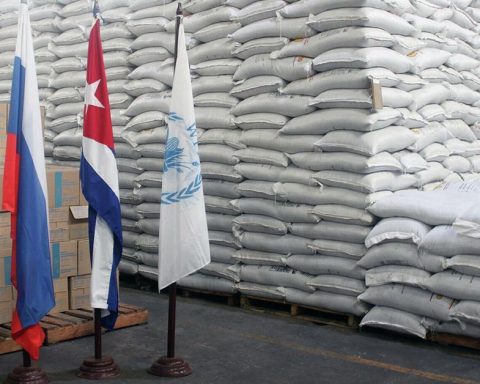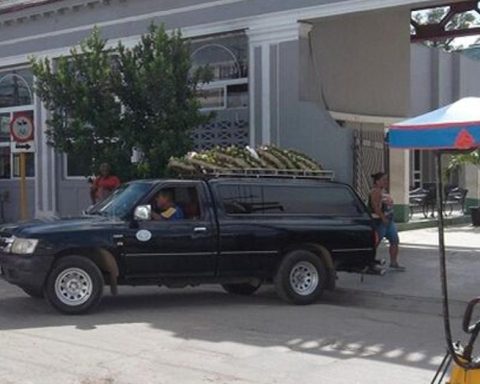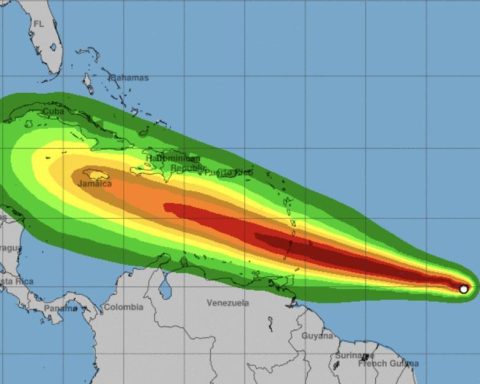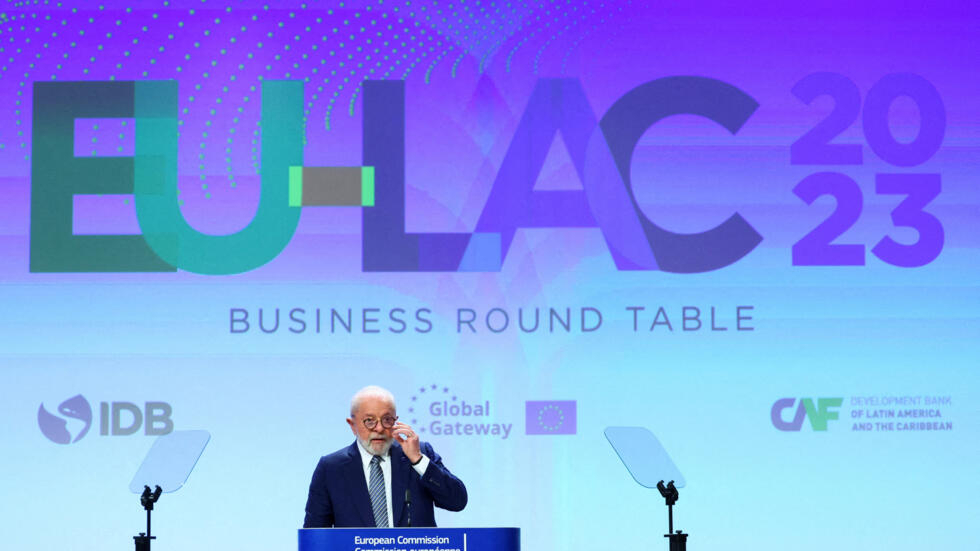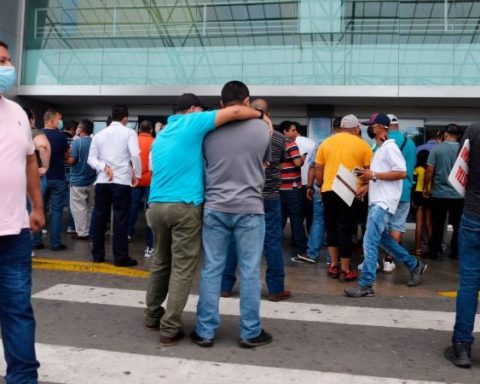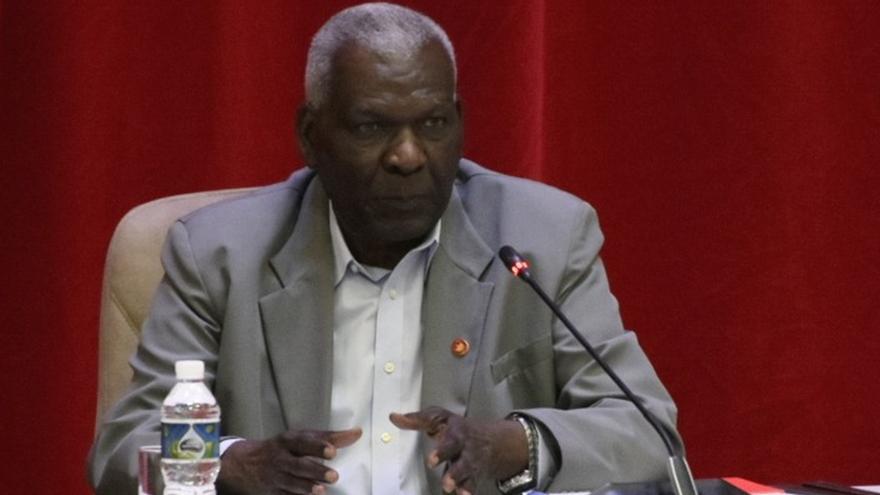
The Cuban Parliament held a session on Tuesday to take the pulse of the national economy so far this year and evaluate the results of 2022. The outlook, judging by the figures offered by the Deputy Prime Minister of Economy and Planning, Leticia Morales , it is devastating: 45.48% year-on-year inflation, only 1.8% growth – predicted reach 3% – barely a 3% global recovery and colossal losses in almost all relevant sectors.
The numbers angered the president of the Assembly himself, Esteban Lazo, who launched a rant against the inability of the leaders to achieve good management and concluded that the Government is “out of money”. “We are already very tired of programs, measures, studies, diagnoses. And where is reality? And where is the solution to the problem?” He asked, before the puzzled faces of the parliamentarians.
“Today the country does not have the resources to keep up with the level of imports we have. Practically 100% of the family basket is being imported.” “Rice is not produced… 100% of the beans are being imported,” he listed. Lazo, noting that in 2017 and 2018 there were plenty of these products.
Vice Prime Minister Morales described the alarming financial situation of the Island, which was able to collect –in the first semester of 2023– only 1,282 million dollars for the export of goods and services, fulfilling 37% of the plan, which translates into a loss of 94 million whose effects will be felt in “activities that demand foreign currency.”
Cuba imports everything, it produces nothing at all. “How long are we going to be in this situation?” ?
Neither an independent media nor an opponent has said so, but Esteban Lazo, president of the National Assembly of #Cuba ?.
What do you think of these words from Lazo? ?️? pic.twitter.com/RQhGIGVqs7
— The Touch (@eltoquecom) July 18, 2023
Regarding the Gross Domestic Product, whose figure Morales did not reveal -although the Minister of Economy, Alejandro GIl, predicted last December that it would exceed 2.2 million dollars-, he stated that not only did it not reach the values of 2019, before the pandemic, but suffered a gap of 8% and, in some of its parameters, fell to negative numbers. “The primary activities report negative values of 34.9%, the secondary ones -20%, and the social ones, -4.9%”, he explained.
“All of this, in a context of shortages and limited access to fuel,” in addition to “distortions with a marked tendency toward dollarization and, in the case of non-state actors in the economy, withholding foreign currency abroad to pay suppliers, without going through the national banking system,” he snapped.
Exports of micro, medium and small companies ( MSMEs) amounted to 6.3 million dollars, but almost the entire figure is due to the sale of charcoal (it represents 0.2% of the country’s exports). Morales recognized that the work of the MSMEs and facilitate their access to raw materials with “fiscal and tax policies” that serve as incentives.
There are 16,253 entities in the country: 2,422 state companies, 5,138 cooperatives, 103 mixed companies, 8,590 MSMEs and 596,000 self-employed
Detailing the Cuban business cartography, the vice prime minister pointed out that there are 16,253 entities in the country: 2,422 state companies, 5,138 cooperatives, 103 mixed companies, 8,590 MSMEs and 596,000 self-employed.
Significant profits were obtained during the first half of the year, but in the usual items: tobacco, rum and seafood exports. However, neither sugar nor charcoal achieved the expected returns. A sector in disgrace whose drift was not expected is nickel, whose exploitation on the Island is in charge of the Canadian company Sherrittto whom Cuba owes 362 million dollars.
Morales regretted that telecommunications, which is managed by the state monopoly Etecsa, have also registered a decrease in their profits and a drop in “foreign currency receipts.” The explanation, he added, is the increase in sales of services in pesos. “This is good for the population, but it affects the collection,” he complained.
As for tourism, there is no room for optimism either: Cuba has received, he said, 1.3 million visitors –80% of the plan for 2023–, but this figure is not even remotely close to that of 2019. “In the In the case of national tourism, 2.9 million tourists accumulate and 7.6 million tourists are expected at the end of the year,” he added.
Regarding inflation (45.48%), Morales confirmed what every Cuban can attest: that 8% of the inflationary effect is concentrated in food, beverages, and transportation. To contain it, he promised – without details – a “macroeconomic stabilization program” with “various actions in certain areas”.
Several deputies took the floor to comment on the deputy prime minister’s report, and pointed out the usual pending tasks in the Cuban economy: the tension between the dollar, the peso and the freely convertible currency (MLC); the mediocrity of the state enterprise and the laborious ascent of the MSMEs; and the lack of food sovereignty.
Very far from the reality confronted this Tuesday in Parliament is what, last December, Alejandro Gil declared without a shadow of a doubt: “2023 is going to be better than 2022.”
________________________
Collaborate with our work:
The team of 14ymedio He is committed to doing serious journalism that reflects the reality of deep Cuba. Thank you for accompanying us on this long road. We invite you to continue supporting us, but this time becoming a member of our newspaper. Together we can continue transforming journalism in Cuba.
